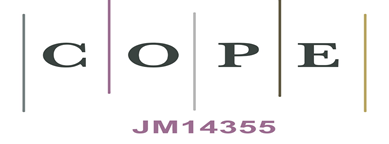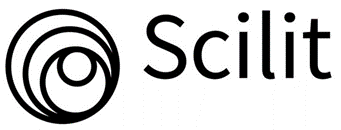Behavior of Reactive Powder Concrete Beams Exposed to Fire
DOI:
https://doi.org/10.24237/djes.2021.14401Keywords:
Exposed to fire, Beams, Fire flame, Cracking, Steel fibers, Reactive powder concrete beamsAbstract
In this paper, the effect of direct fire flame and steel fiber ratio on some mechanical properties and behavior of the relationship between load and deflection of rectangular reinforced concrete beams under the influence of fire exposure was studied. Concrete specimens were exposed to fire at temperatures ranging from (25- 400 ºC). Three temperature levels of (200, 300, 400 ºC) where chosen for exposure duration of 2.0 hours. After conducting the test, it was found that increasing the proportion of steel fibers in percentages 0.5% to 1% and 1.5% decreases the mid-span deflection at service load by 33%, 50% and 37.5 and increases the ultimate load by 36.36%, 41.6% and 53% respectively. After the beams are exposed to fire, it was noticed that the maximum crack width increases with increasing fire temperature.
Downloads
References
Abdelrahim, Mahmoud Ahmed Ali, Aboelwafa Elthakeb, Usama Mohamed, and Mohamed Taha Noaman. "Effect of steel fibers and temperature on the mechanical properties of reactive powder concrete." Civil and Environmental Engineering 17, no. 1 (2021): 270-276.
Abid, Muhammad, Xiaomeng Hou, Wenzhong Zheng, and Raja Rizwan Hussain. "Effect of fibers on high-temperature mechanical behavior and microstructure of reactive powder concrete." Materials 12, no. 2 (2019): 329.
Mundhada, Ashok R., and Arun D. Pophale. "Effect of elevated temperatures on performance of RCC beams." International Journal of Civil, Structural, Environmental and Infrastructure, Engineering Research and Development 3, no. 3 (2013): 105-112.
Hou, Xiaomeng, Pengfei Ren, Qin Rong, Wenzhong Zheng, and Yao Zhan. "Effect of fire insulation on fire resistance of hybrid-fiber reinforced reactive powder concrete beams." Composite Structures 209 (2019): 219-232.
Kahanji, Charles, Faris Ali, and Ali Nadjai. "Explosive spalling of ultra-high performance fibre reinforced concrete beams under fire." Journal of Structural Fire Engineering (2016), 7, 328–348.
Bayan S. A., Nura, J.M., Residual Strengths of Reinforced Normal Strength, High Strength, Lightweight Concrete Panels Exposed to High Temperatures, Journal of Engineering and Development, 19 (3), 2012, P.190–210.
Aamer, N. A. "Experimental study of polypropylene fiber reinforced concrete panels subjected to elevated temperatures." Journal of Engineering and Development 14, no. 2 (2010): 110-126.
Husem, Metin. "The effects of high temperature on compressive and flexural strengths of ordinary and high-performance concrete." Fire Safety Journal 41, no. 2 (2006): 155-163.
Bakhtiyari, S., A. Allahverdi, M. Rais-Ghasemi, A. A. Ramezanianpour, T. Parhizkar, and B. A. Zarrabi. "Mix design, compressive strength and resistance to elevated temperature (500 C) of self-compacting concretes containing limestone and quartz fillers." International Journal of Civil Engineering 9, no. 3 (2011): 215-222.
Anand, N., and G. Prince Arulraj. "Effect of grade of concrete on the performance of self-compacting concrete beams subjected to elevated temperatures." Fire Technology 50, no. 5 (2014): 1269-1284.
Egyptian Standards–Building Materials Committee “Cement part1: composition, specifications and conformity criteria for common cements (ES 4756- 1),” Cairo (Egypt), Egyptian Organization for Standards and Quality, EOS. 2013.
E.S.S.1109/2008. Aggregates for Concrete. Ministry of Industry, Cairo, Egypt, 2008.
ASTM.C-494. Chemical Admixtures for Concrete. Philadelphia, USA. 2015.
Downloads
Published
Issue
Section
License
Copyright (c) 2021 Mahmoud Ahmed Ali, Aboelwafa Elthakeb, Usama Mohamed, Mohamed Taha Noaman

This work is licensed under a Creative Commons Attribution 4.0 International License.












